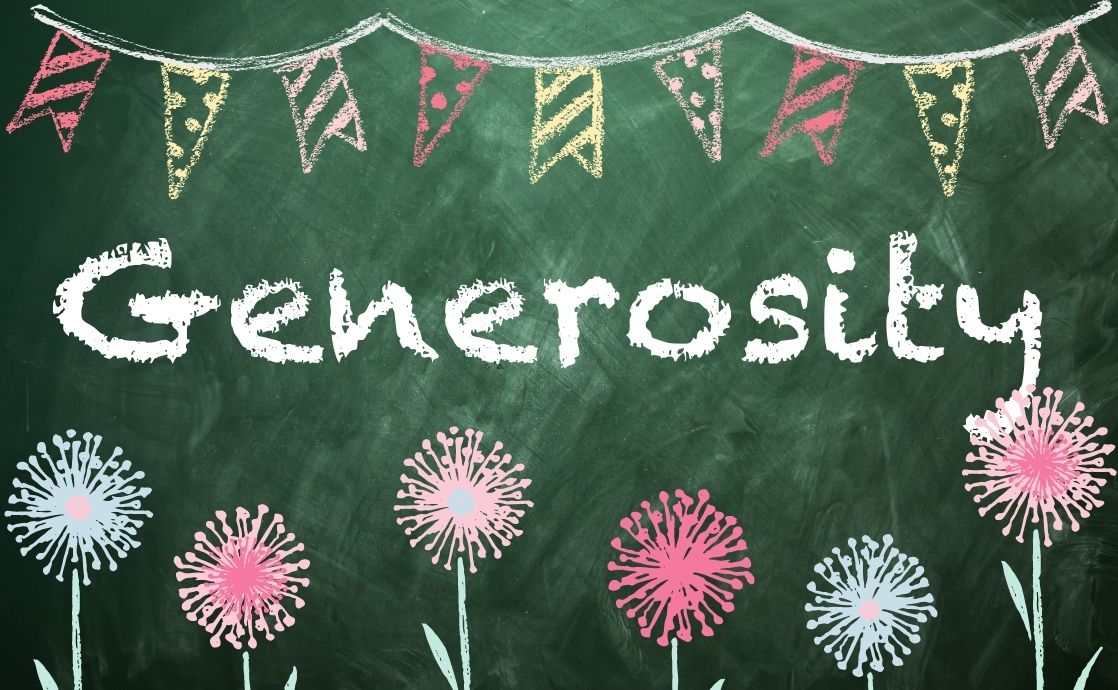The concept of generosity is multi-faceted, embodying an array of attributes that extend beyond mere financial donations or acts of charity. Instead, it encompasses a profound way of engaging with the world, one that reflects an intrinsic benevolence and a commitment to the collective well-being of humanity. At the heart of Bahá’í teachings lies the metaphor of the “Virtues Basket,” a conceptual repository filled with the ethical qualities that elevate humanity toward its noblest expressions. In this exploration, we delve into the nature of generosity as depicted within the Bahá’í framework, illuminating its complexities and extraordinary resonance.
To comprehend the essence of generosity, one must first acknowledge its foundational role within the Bahá’í Faith. Generosity transcends a mere act; it is a disposition of the heart, the very fabric of human interaction that fosters connection and unity. This basket is unlike any other; it contains not only tangible acts but also the spirit behind those acts, knitted together by the threads of empathy, kindness, and selflessness.
Within this Virtues Basket, generosity is often heralded as a paramount virtue, serving as a key that unlocks myriad doors of possibility. It beckons individuals to reflect upon their moral responsibilities to one another. As one pours generosity out from the basket, they infuse the world with acts of compassion that are as diverse as they are profound. Each flicker of generosity reflects an understanding that individual well-being is inextricably linked to the greater good.
Moreover, the Bahá’í teachings advocate for a type of generosity that is holistic, encompassing both the material and the spiritual. It posits that true wealth is not derived from the accumulation of possessions but rather from the richness of one’s character and the extent to which one contributes to the upliftment of others. This redefinition of abundance is perhaps one of the most striking appeals of the Bahá’í perspective on generosity, urging individuals to contemplate their values and priorities in a world often skewed toward materialism.
The practice of generosity within the Bahá’í community is not relegated to sporadic acts; it is a consistent, deliberate choice that reflects a deeper understanding of humanity’s interconnectedness. For instance, creating inclusive spaces for dialogue and understanding can be seen as acts of generosity, fostering an environment where diverse perspectives can coalesce for communal growth. The metaphor here serves as a reminder that generosity, in its essence, is an ongoing journey rather than a destination.
Furthermore, within this metaphorical basket, acts of generosity extend beyond individual interactions and into the societal realm. The Bahá’í teachings emphasize the importance of social action and community-building efforts, demonstrating that collective generosity can lead to systemic change. It is a vision that encompasses justice, equality, and a commitment to eradicating poverty—concepts that, when woven together, create a new social fabric resonating with the potential for harmony and cooperation.
One might contemplate the paradoxical nature of generosity; it thrives not in self-interest but in selflessness. When one gives, it often seems that they receive far more in return—fulfillment, joy, and a sense of purpose. The Bahá’í Faith illustrates this beautifully by positing that the true measure of one’s generosity lies not in how much one gives but in the spirit with which one gives. The act becomes a reflection of divine attributes, thus inviting a deeper communion with the Creator.
Additionally, this philosophical stance encourages individuals to cultivate an attitude of gratitude, a vital companion to the practice of generosity. Recognizing that one has the capacity to share, be it tangible resources or intangible support, fosters a sense of abundance that can permeate one’s existence. The basket becomes ever fuller, not merely through what is taken from it but through the continuous act of giving, allowing a reciprocating flow of generosity that nurtures both individual and community growth.
In the context of the modern world, where division often takes precedence over unity, the teachings on generosity underscore its critical role as a balm for societal ills. In a culture steeped in individualism, the Virtues Basket invites a paradigm shift toward collective well-being. Generosity, therefore, is a clarion call for individuals to reflect on their actions and the implications they have on the tapestry of human life. It teaches that every small act, whether through a kind word or a helping hand, ripples outward, effecting change far beyond what the giver might initially perceive.
Ultimately, the Virtues Basket serves as an enduring reminder of humanity’s shared potential. It encapsulates the essence of generosity not as an isolated virtue but as one intricately entwined with other moral qualities such as kindness, patience, and love. Each time an individual reaches into this basket to extend generosity, they contribute to the elevation of humanity, transforming both the self and the world around them.
As one contemplates the contents of this Virtues Basket, it becomes apparent that the practice of generosity is not merely an altruistic endeavor but a journey toward spiritual development. It implores each person to engage actively, fostering conditions that enable the flourishing of community and the elevation of the collective human spirit. Through the lens of Bahá’í teachings, generosity emerges not only as an act of giving but as a profound commitment to participate in the divine orchestration of a world where every individual is valued, and every act of kindness is a thread in the expansive fabric of humanity.
